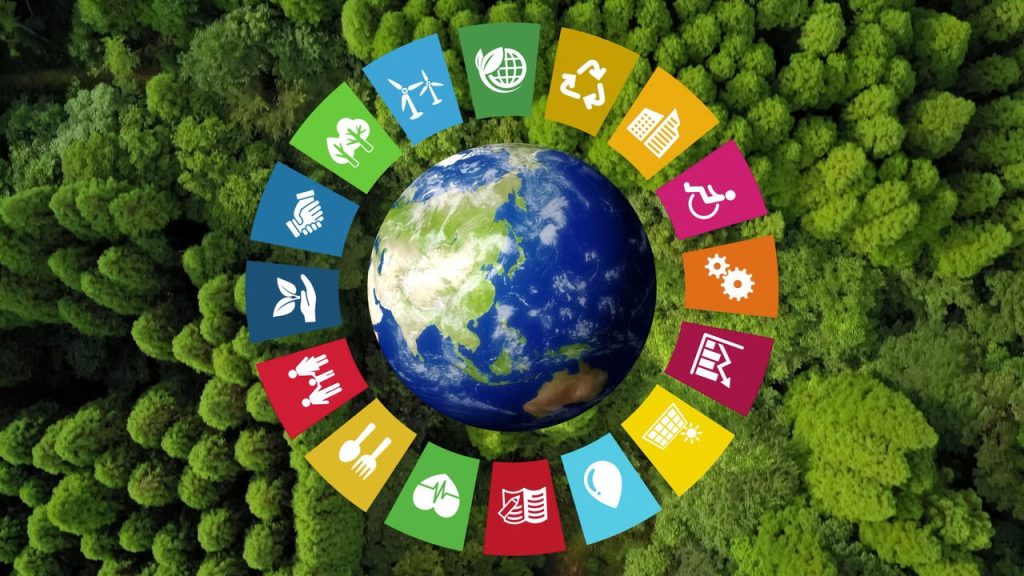
Introduction
In an increasingly interconnected world, the nexus between economics and the environment has become a focal point of global discourse. The traditional paradigm of economic growth often came at the expense of environmental degradation, leading to a growing recognition of the need for sustainable development. This article explores the intricate relationship between world economics and environmental sustainability, highlighting key challenges, opportunities, and strategies for achieving a harmonious balance between the two.
The Cost of Environmental Degradation
Historically, economic progress has been measured primarily by metrics such as GDP growth, employment rates, and industrial output, often neglecting the hidden costs of environmental degradation. Pollution, deforestation, and resource depletion not only endanger ecosystems but also impose significant economic burdens in the form of healthcare costs, loss of biodiversity, and diminished agricultural productivity. Moreover, climate change, driven by anthropogenic activities, poses unprecedented risks to global economies, exacerbating natural disasters, disrupting supply chains, and threatening coastal infrastructure.
Transitioning to a Sustainable Economy
Recognizing the urgency of addressing environmental challenges, many nations and businesses are increasingly embracing sustainable practices and transitioning towards a green economy. Investments in renewable energy, circular economy initiatives, and eco-friendly technologies are not only mitigating environmental impacts but also stimulating economic growth and job creation. The renewable energy sector, in particular, has emerged as a key driver of economic development, offering viable alternatives to fossil fuels and reducing reliance on volatile energy markets.
The Role of Policy and Regulation
Effective environmental stewardship requires robust policy frameworks and stringent regulations to incentivize sustainable practices and discourage harmful activities. Governments play a pivotal role in setting emission standards, enforcing environmental regulations, and providing incentives for green innovation through subsidies, tax credits, and carbon pricing mechanisms. International agreements such as the Paris Agreement provide a platform for global cooperation on climate action, signaling a collective commitment to reducing greenhouse gas emissions and transitioning to a low-carbon economy.
Fostering Innovation and Technological Advancement
Advancements in technology are instrumental in addressing environmental challenges and driving sustainable development. From breakthroughs in clean energy to advancements in waste management and conservation practices, innovation holds the key to unlocking new opportunities for economic growth while minimizing ecological footprints. Moreover, digitalization and data analytics are enabling more efficient resource allocation, enhancing environmental monitoring, and empowering consumers with information to make sustainable choices.
The Imperative of Corporate Responsibility
Businesses, as major stakeholders in the global economy, wield significant influence over environmental outcomes through their operations, supply chains, and product offerings. Corporate responsibility entails integrating environmental considerations into business strategies, adopting sustainable production methods, and transparently disclosing environmental impacts to stakeholders. Beyond regulatory compliance, leading companies are increasingly embracing corporate sustainability as a source of competitive advantage, driving innovation, enhancing brand reputation, and fostering long-term resilience in a rapidly changing world.
Promoting Sustainable Consumption and Lifestyles
At the individual level, consumers play a pivotal role in shaping demand patterns and influencing market dynamics. By adopting sustainable consumption practices, such as reducing waste, choosing environmentally friendly products, and opting for renewable energy sources, individuals can contribute to mitigating environmental impacts and driving market demand for sustainable alternatives. Education, awareness campaigns, and incentives can empower consumers to make informed choices aligned with environmental values, thereby catalyzing a shift towards more sustainable lifestyles.
Addressing Global Inequality and Environmental Justice
While the benefits of economic development are often unequally distributed, environmental degradation disproportionately affects marginalized communities and vulnerable populations, exacerbating social inequalities. Achieving environmental justice requires addressing underlying socio-economic disparities, ensuring equitable access to resources, and empowering communities to participate in decision-making processes that affect their livelihoods. Moreover, integrating principles of justice and equity into environmental policies can enhance resilience, foster social cohesion, and promote inclusive sustainable development.
Conclusion
The intersection of world economics and environmental sustainability presents both challenges and opportunities for global prosperity. By embracing a holistic approach that integrates environmental considerations into economic decision-making, fostering innovation, promoting corporate responsibility, and empowering individuals and communities, we can navigate towards a more sustainable future. Ultimately, achieving environmental sustainability is not only a moral imperative but also a strategic imperative for securing shared prosperity and well-being for present and future generations.